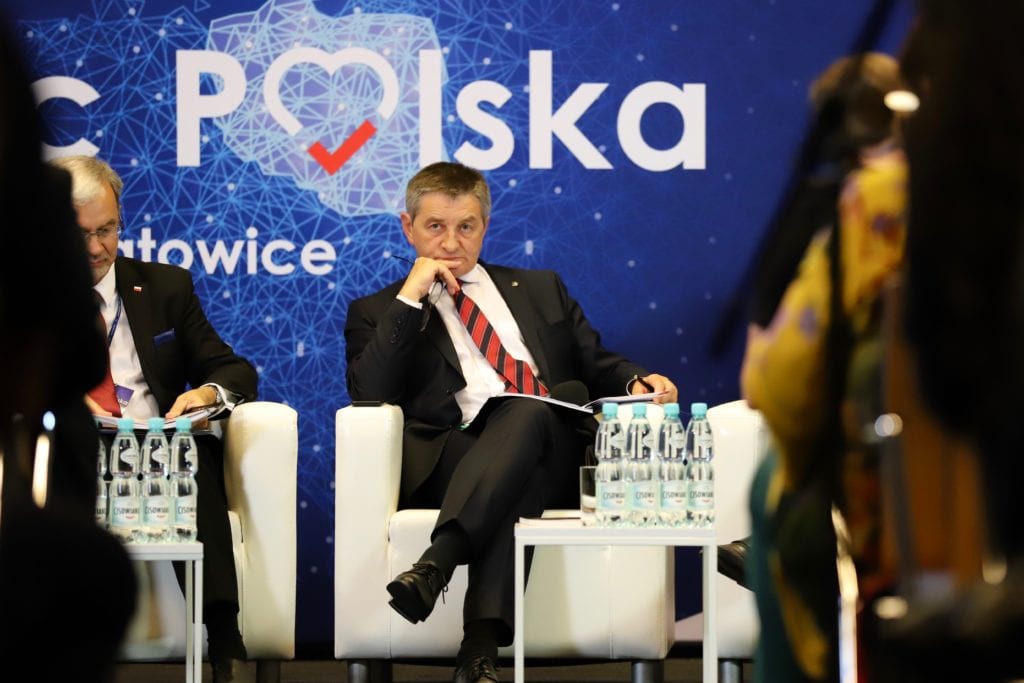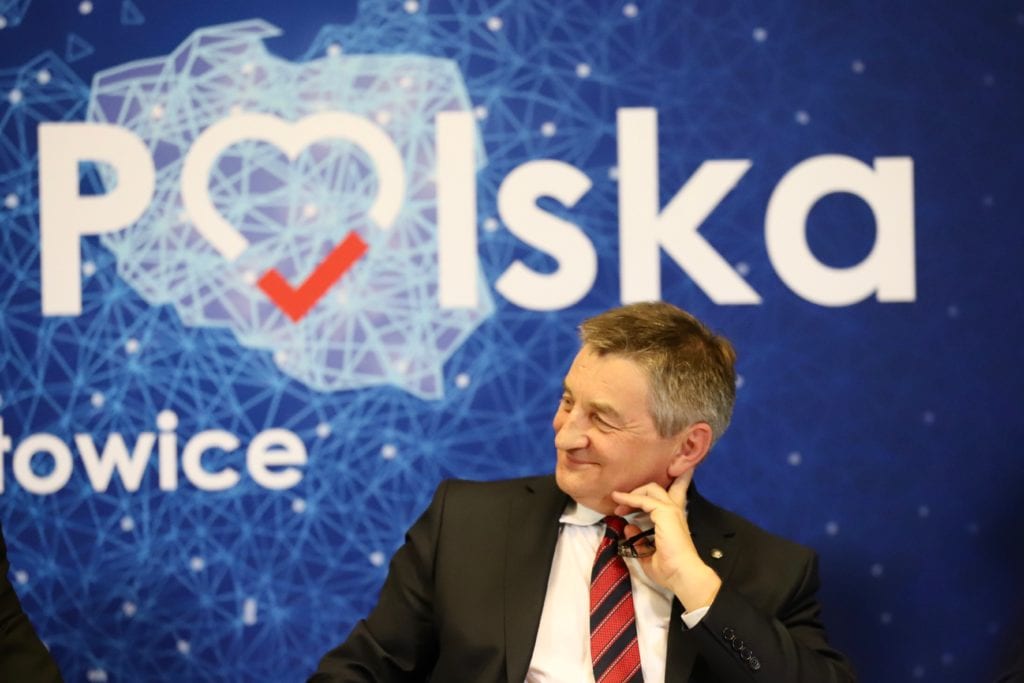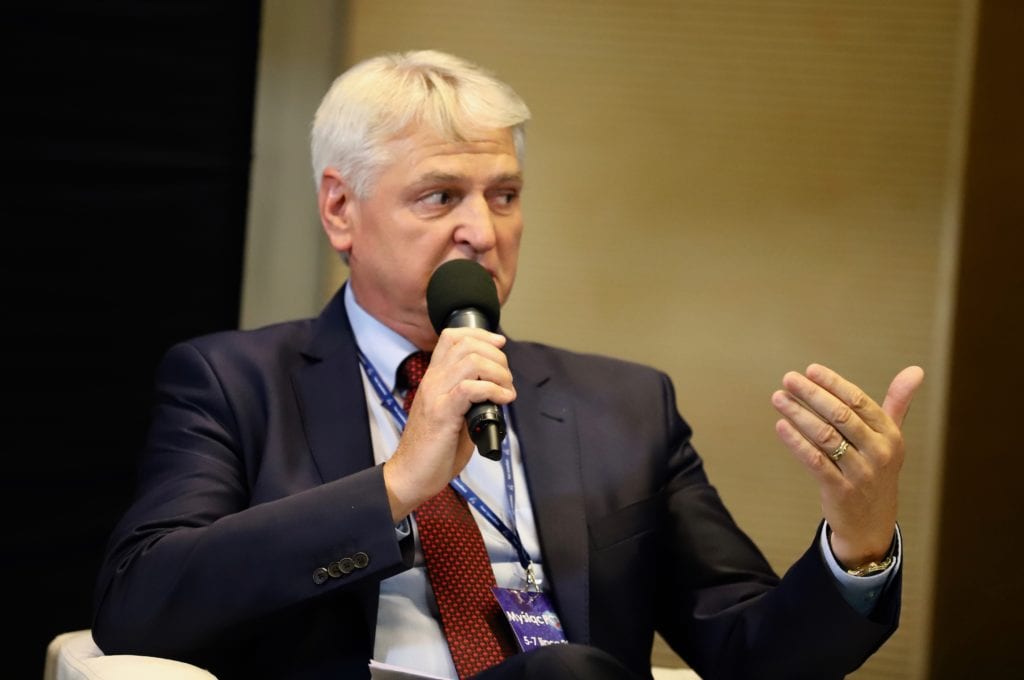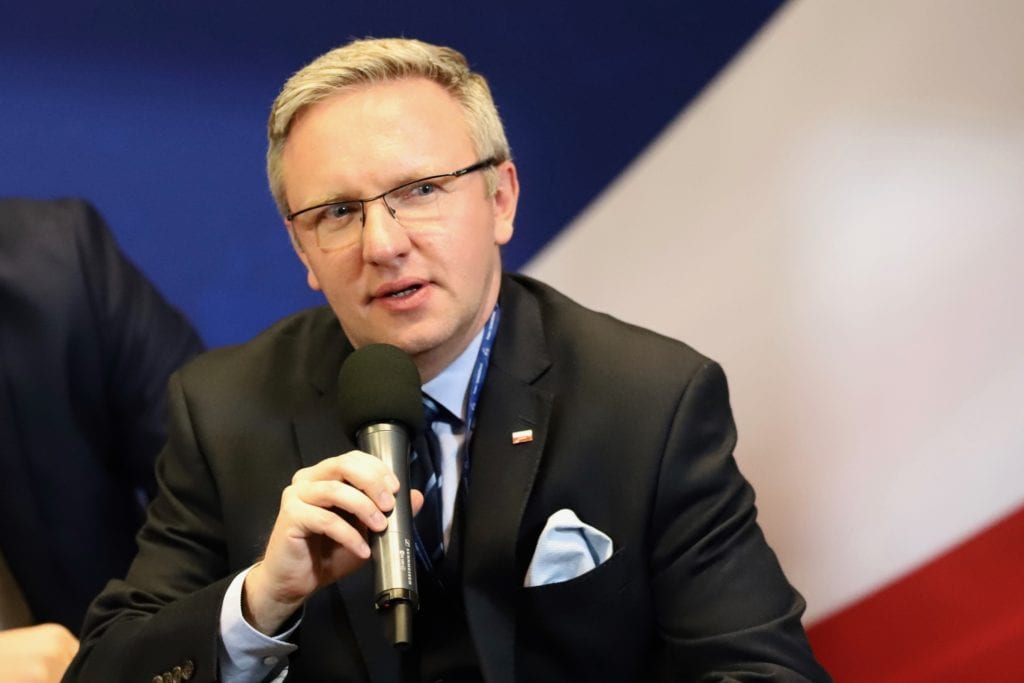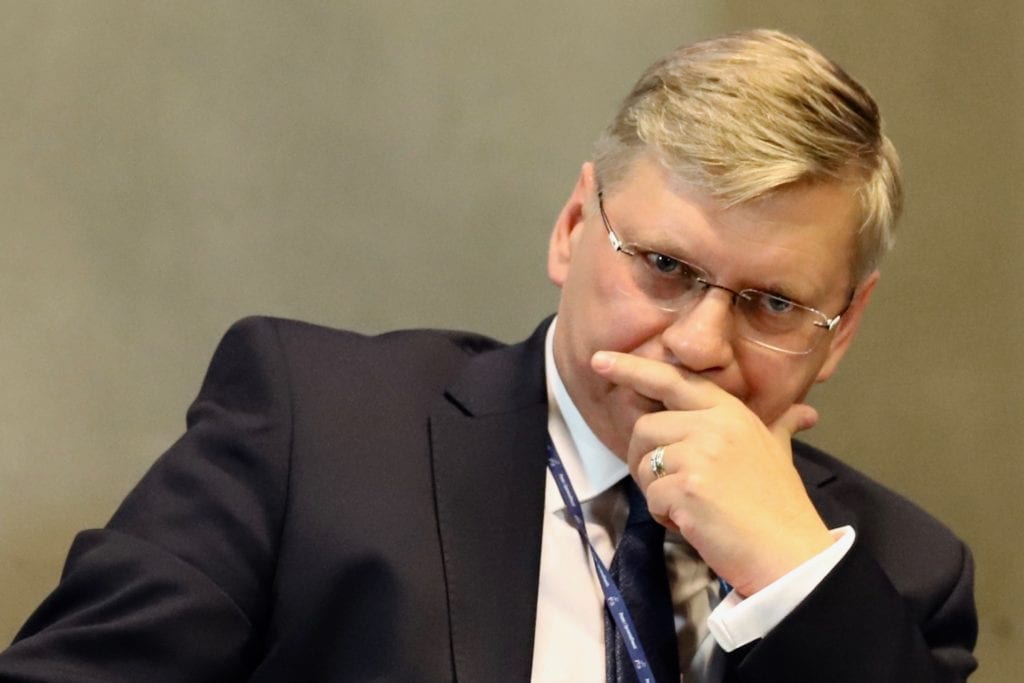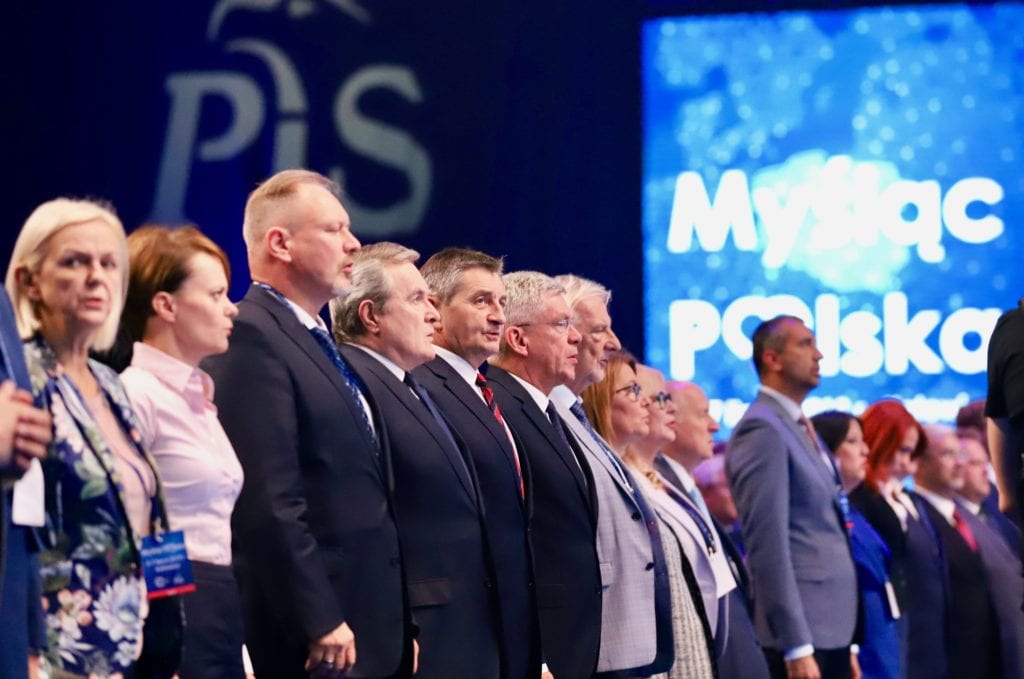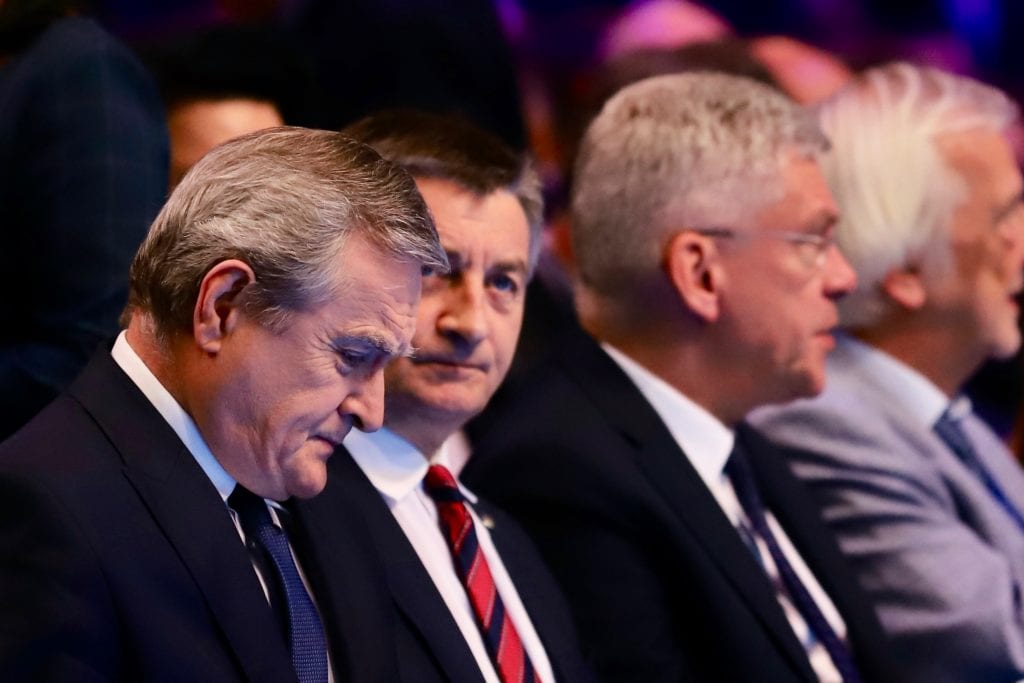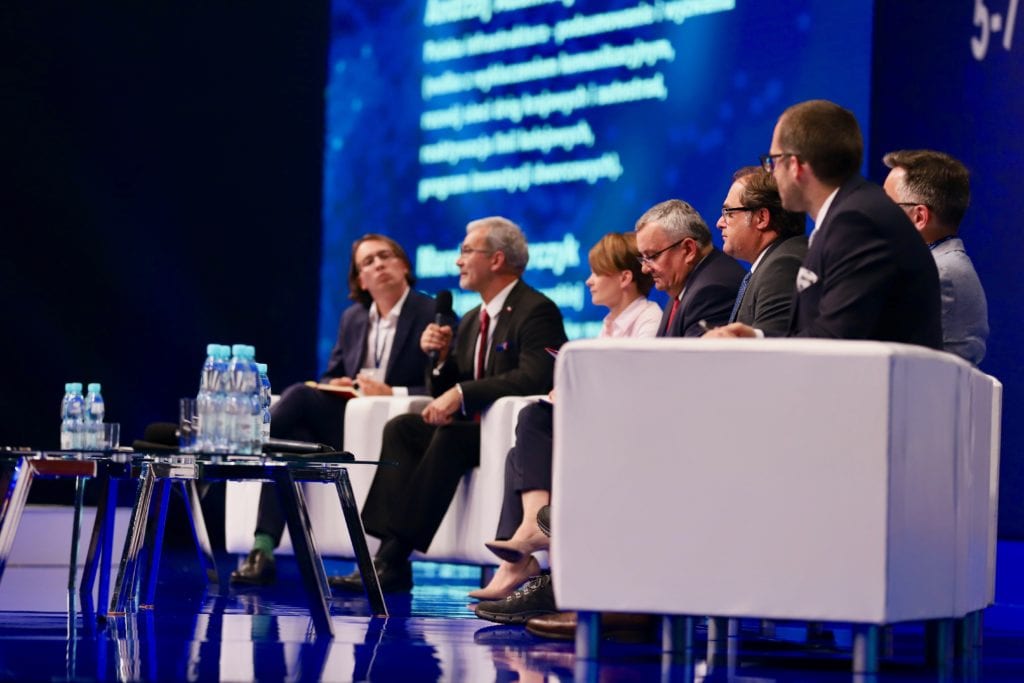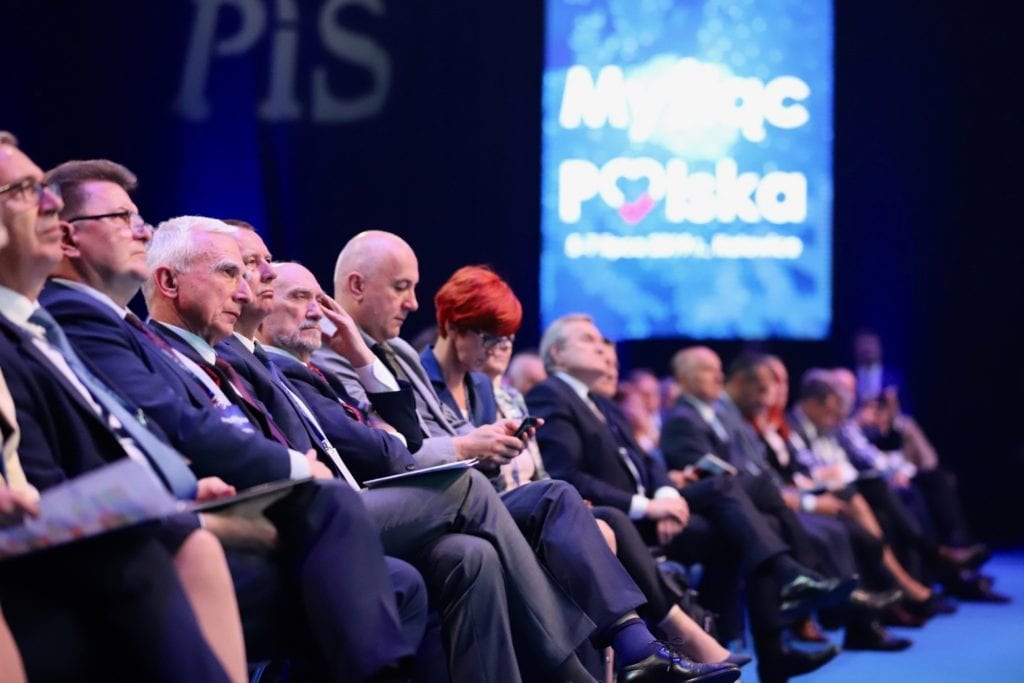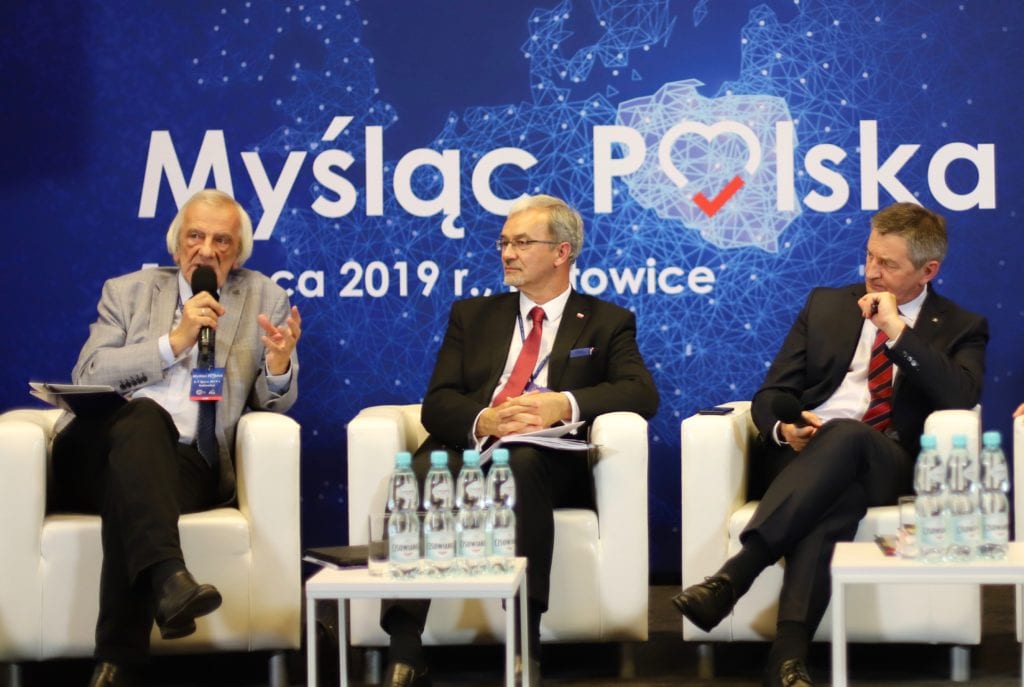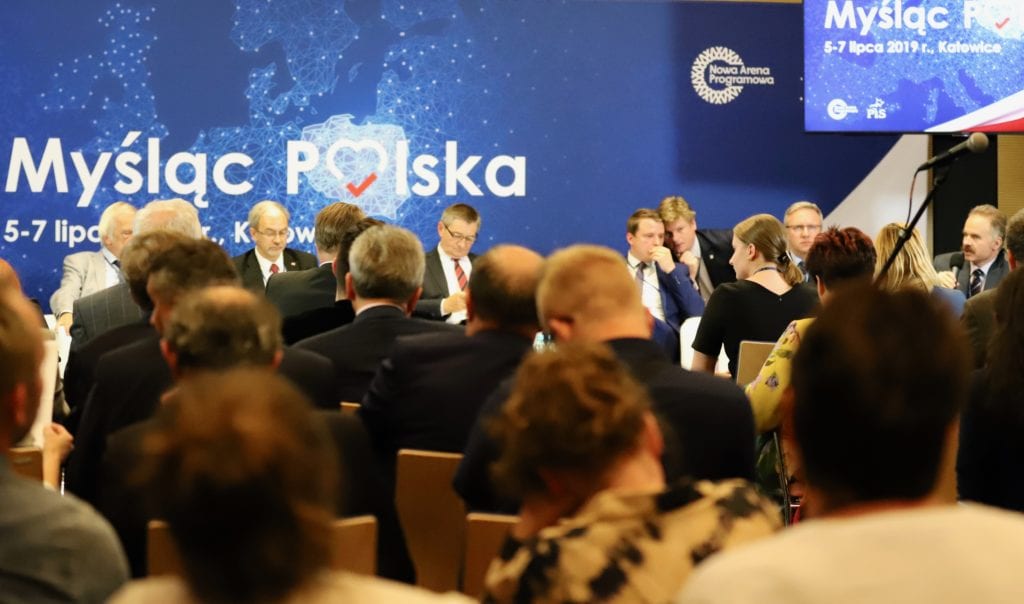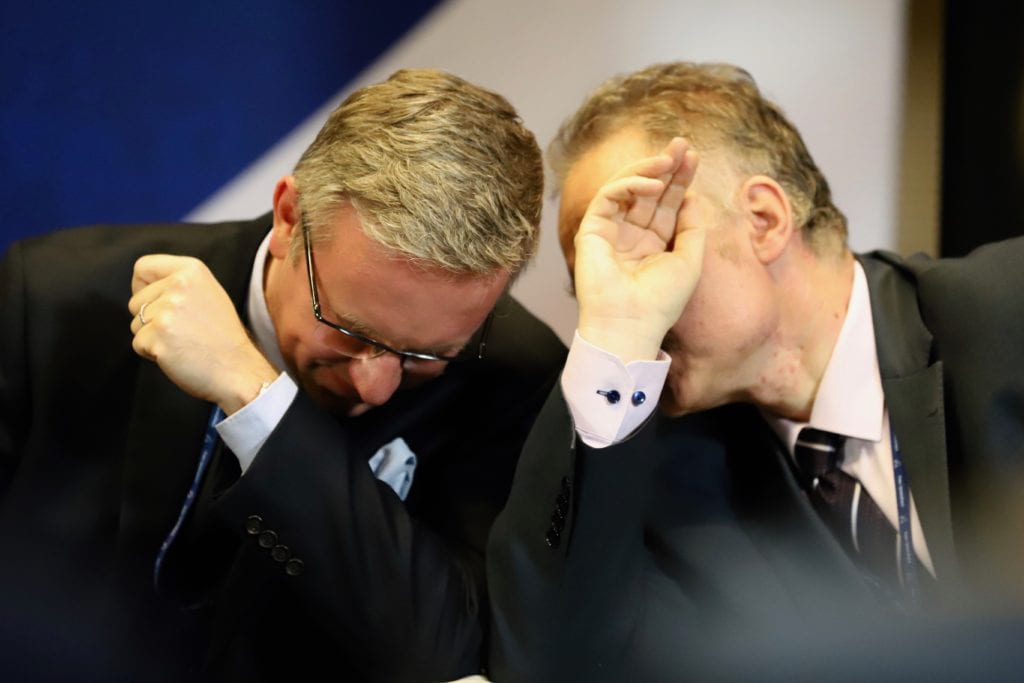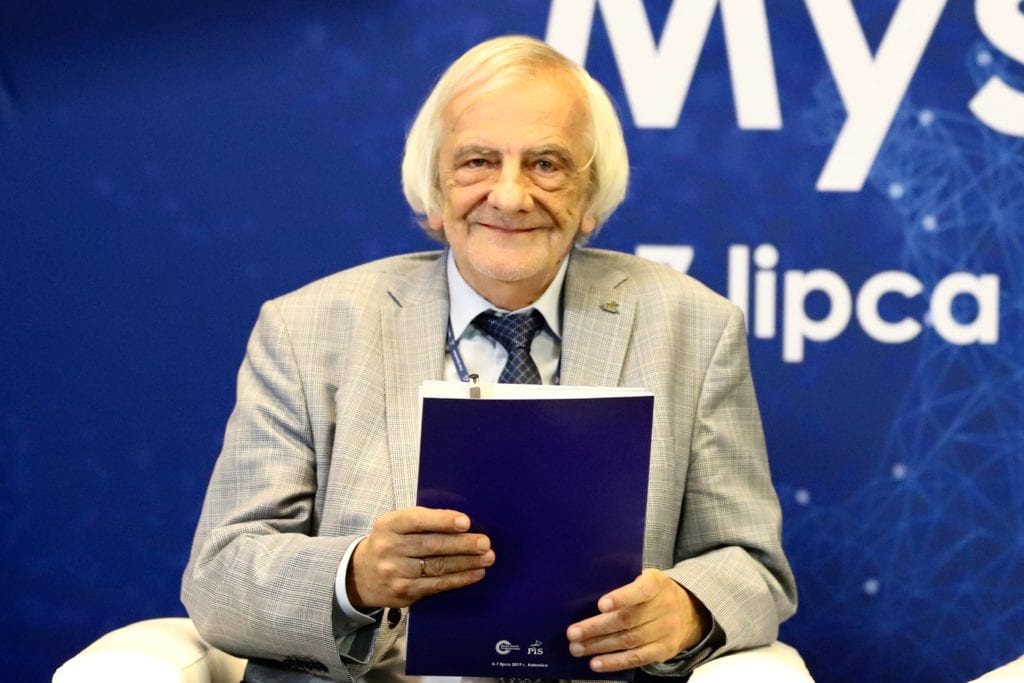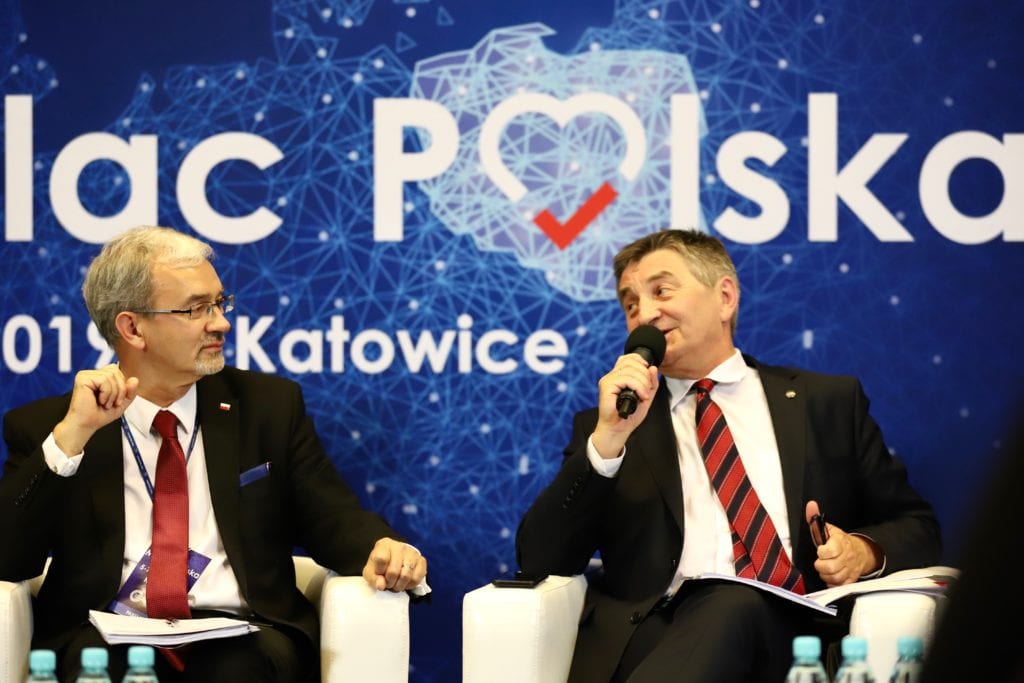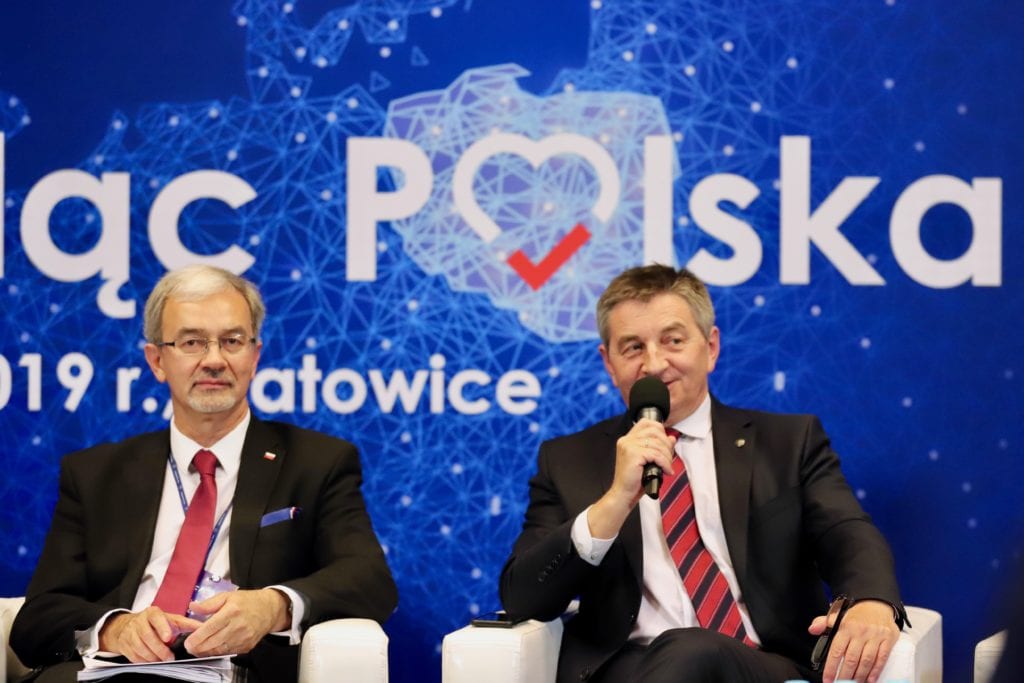Panel "Carpathian Europe - Europe of our future" - Law and Justice convention, Katowice 2019
Moderator: Marek Kuchciński, Speaker of the Polish Sejm
Panelists:
Ryszard Terlecki, Deputy Speaker of the Polish Parliament
Krzysztof Szczerski, Head of the Office of the President of the Republic of Poland
Adam Balazs, Director of the Office of the Secretary for International Affairs of Fidesz
Professor Waldemar Paruch, Director of the Centre for Strategic Analysis of the Chancellery of the Prime Minister
Prof. Maciej Szymanowski, Director of the Wacław Felczak Institute
Jerzy Kwiecinski, Minister for Investment and Development
Jan Hudacky, President of the Institute of Christian Social Thought in Bratislava
Discussion on the past and future of the Europe of the Carpathians initiative in the pan-European context, with with the participation of the creators, participants and allies of the project from Hungary and Slovakia.
Marek Kuchcinski:
"Europe of the Carpathians - Europe of our future" is a theme that sounds a bit metaphorical, but proposed on purpose in order to look into the future from the perspective from the perspective of 20 years - from the Green Carpathian initiative, which we created as part of Polish The Green Carpathian Initiative, which we created in the framework of Polish-Slovakian-Ukrainian cooperation, developing it in all areas, not not only between local governments or governmental commissions for trans-border cooperation, but not only between local governments or governmental commissions for transborder cooperation, but also within the framework of cooperation of representatives of all institutions, including parliaments. For 10 years we have been calling these meetings Carpathian Europe. The theses we put to the panelists are as follows:
- Central European borderland or periphery of the European Union and the Threats and opportunities for the region in the conditions of revived of geopolitics.
- A new model of sustainable development for the Carpathian countries -. Experience in breaking economic dependence.
- Carpathians for Europe - potential of the region, Carpathian strategy, community of cultures, subjectivity of the region.
- Nation-states - value and guarantor of diversity of Central Europe Central.
Let me remind you of Milan Kundera's famous thesis that Central Europe is the Central Europe is the most rich of all the continents. We have the most cultures, languages - maximum diversity on minimum territory - 40 Nobel Prize winners, the greatest number of outstanding personalities - from art to economy. I would like to draw your attention to two I would like to point out two elements: from the Central European perspective I would like to draw your attention to two elements: from the perspective of Central Europe two issues are fundamental for our civilization: sovereignty and freedom - in relation to every area of our life Our life - and the values derived from the system of the Christian human nature - an axiological system. From these two elements grow other - related to security, economy, development, new technologies, politics, etc. Today in the European Union they refer to democracy and human But after all, they grow out of Christianity.
Ryszard Terlecki:
The Carpathians are said to be the land of wine, mutton and cheese... But it is first and foremost the land of attachment to values, traditions and achievements of generations. We understand the Carpathians more broadly - as Central Europe. It is said that people who live in the mountains are closer to God. This is also a commitment to faith. Our region is becoming a barrier to ideas that threaten our traditions, sovereignty, and social solidarity. The Carpathians, the wider Europe of the Carpathians, have certain characteristics that distinguish them from Western Europe. The region suffered many war dramas and then Soviet captivity. People in the West do not understand this, they do not understand our conviction that freedom is a value that one can die for. Western politicians believe that this is an anachronism, that today it is not worth dying for the Homeland, for the faith, for freedom. EK is such an area where we understand each other, exchanging these values.
What's next. We have reached the level of intensification of the project, many things are happening, Via Carpatia is being built, we feel that we cannot stand still and we need to take a step further. What would that step be? In our part of Europe governments change quite often, early elections are held, there are not many stable countries like Hungary and Poland... Marshal Kuchciński convinced us to think that we should build a community of parliaments, that there is room for rapprochement here. In history we have excellent projects reaching much further than our cooperation today: our political emigrations during the communist era, committees of free Hungarians, Croats, the Polish Government in Exile and others talked for years very seriously about a confederation of our region. The question for us, who are extremely attached to sovereignty: what room is there for us to move towards togetherness? When six countries (Lithuania, Latvia, Estonia, Poland, Georgia, Ukraine) left the Council of Europe last week in protest against the restoration of Russia's membership, after meeting with representatives of these countries we wondered: maybe we need our own Council of Europe - of Central and Eastern Europe?
Krzysztof Szczerski:
The whole concept of Carpathian Europe would not exist without Marshal Marek Kuchciński. It took political imagination to start a discussion about a new, broader perspective on our role in the region than the Visegrad Group. Starting from the Carpathian Europe as a concept, which was born in our political environment, maintaining the instruments for political action, we were able to bring through the Presidential Palace two serious new forms of political cooperation of the region, showing its great potential. The first one is the Bucharest nine related to the NATO summit in Warsaw, in November 2015. At that time we managed to harmonize the security policies of countries from Estonia to Bulgaria so that we have a common position as the countries of NATO's eastern flank. The second one is the Tri-Moor - from Estonia to Croatia - one of the flagship forms of cooperation within the European Union, an important building block of integration.
As far as Christian values are concerned, let us remember that apart from political patron of regional ideas, i.e. President Lech Kaczyński, we also have a spiritual patron of our cooperation, that is John Paul II, about whom II, about whom we must speak more and be more open in giving testimonies.
In terms of challenges for the future, we need to build the resilience of of our region because we are doing so well that we can expect to be attacked. We have also a responsibility to our neighbors, like Georgia and Ukraine, who cannot remain too long outside of our world.
Adam Balazs:
We can work together not only at the government level, but also party level. The Visegrad Group countries have achieved excellent results in the elections to the The Visegrad Group countries achieved excellent results in the elections to the Europarliament. They proved our strength on the political level. The fact that neither Manfred Weber and Timmermans did not become heads of the European Commission is our common success. joint success. Fidesz received a strong mandate from society on issues such as mass emigration, defense of borders or Christian culture. And this undoubtedly unites us with the entire Visegrad Group. It is a strong foundation for further action in all bodies of the European Union.
Waldemar Paruch:
Carpathian Europe is a classic example in foreign policy when thought came first and then action. It proves that Poland should build its potential in Central Europe, which will enable us to gain proper subjectivity in the European Union and establish relations with our two most important neighbors. Initially, Carpathian Europe was a cross-border idea, located in the Carpathians as a natural environment. Carpathian Europe was a political idea based on the idea that mountains can unite. The Carpathians were seen in the context of diversity, but based on a value system characterized by tolerance and pluralism. The dynamics of EK are also clearly visible. The first phase was from 1998 to 2011, when it was a sub-regional idea. The most difficult period was between 2011 and 2014 - thanks to Marshal Kuchciński, it was the only official parliamentary initiative implemented by Law and Justice. 2014 was a breakthrough - the conference in Krynica showed the broad landscape of our interests: from geopolitics to cooperation across Central Europe (today 150 million people, 18 percent of EU GDP, 16 EU countries are in the CEE). Thanks to the fact that we are in power, since 2015 additional initiatives could appear, we started to build network connections. These are the best solution for this part of the continent, which are based on the assumption of sovereignty of states. Not only do the mountains run through Carpathian Europe, but also the EU and North Atlantic Alliance borders. Strengthening the eastern flank of NATO is therefore our common interest. Geopolitics in our environment has become standard. Today the political elites know that there is a Europe of the Carpathians. Without EK there would be no Via Carpatia.
Jerzy Kwiecinski:
We have brought the discussion on Carpathian Europe to a completely different level. 2011 was a very difficult year for us. The government did not support us and only Only thanks to the efforts of Marshal Kuchciński this idea survived. Already in 2011 Marshal Kuchciński asked me to write assumptions for the Carpathian Strategy. Carpathian Strategy. The Carpathians are located in Europe, they are the most diverse not only in not only in terms of nature, but also culture. Today they are beginning to connect us again, not not divide us. We have started work on the preparation of macro-regional strategy as a European strategy, which is the strongest instrument in regional policy in the regional policy in the EU (at present there are four of them). The importance of the macro-regional dimension can be seen, for instance, in The Baltic Strategy (concerns the countries around the Baltic Sea), in which Poland started to participate. started to participate in it. The highest standard of living currently applies to the Baltic countries.
Jan Hudacky:
Poland is a force that influences geopolitics and it is on this Europe of the Carpathians should be built on this. The plane on which we can move is the social teaching of the Church. The concrete implementation of its teachings in politics, as well as the pro-family The concrete implementation of its teachings in politics, as well as the pro-family policy applied by the Law and Justice could spread in the countries of Carpathian Europe. This would unite us.
Maciej Szymanowski:
This region is certainly not the periphery. There are still strange echoes of the claim, invented in the 1930s in France, that the world consists of centers and peripheries. But what kind of peripheries are we talking about, since each of us in the morning reaches for a tube of toothpaste or cosmetics invented by Max Factor (Max Factor), sugar cubes invented by the Czech Jakub Rada, while wearing clothes with nylon thread invented also by Czech Otto Wichterle. Entering into the hall, we had to go through a metal detector, which was During the Second World War, Józef Kosacki invented it. would not have been possible without Jan Szczepanik, everyone has a cell phone that works on technology invented by Jan Czochrowski... The most important thing at the moment is that this is not only history. Our compatriot, Jan Kapusta, invented the icosahedron. The so-called K-dron is a certain way of playing with space and covering it, which is that the paint behaves differently under the influence of light. It is already being used in some London Underground stations.
Przemysław Czarnek, governor of lubelskie (voice-over):
We made a course from the first words of Mr. Speaker Kuchciński, which concerned the values on which the Europe of the Carpathians is based, through the voice of Mr. Speaker Terlecki, who said that the man who lives in the mountains is closer to God. Through great geopolitics we came to prosperity. All countries have experienced seven years of poverty, while none has experienced seven years of prosperity. We want our prosperity to look like Western Europe. But something that sets us apart is that we are a Europe of the spirit. There the process of secularization, de-Christianization has gone extremely far. So much so that Benedict XVI says that Christian Europe is not and will not be anymore. The question is to what extent in the strategy of the Carpathian Europe and the Visegrad Group we will bet on the Europe of the spirit.
Text transcribed live, without authorization
MO
Photo by Marta Olejnik
